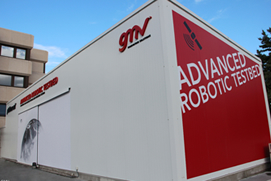Its testbed ‘Platform-art’ is the first of its kind in Europe and one of the most advanced in the world for testing space operations: mission analysis, flight dynamics, control centers, simulations and satellite navigation.
Spanish company GMV has placed into service Platform-art, an advanced robotic testbed for space missions and systems. It is the first such laboratory in Europe.
The company is able to carry out tests for capturing space debris, exploring the surface of other planets, lunar landings and formation flying missions. This differentiates it from other companies in the industry and makes GMV one of the leading European firms in its field.
In addition, this testbed makes Spain one of the world’s leaders in mission analysis, flight dynamics, control centers, simulation and satellite navigation. GMV carries out the engineering and design, as well as performing final hardware testing.
GMV is the third largest European contributor to Europe’s GPS system, and the world’s largest supplier of ground control systems for commercial telecommunications satellite operators, as well as the leading supplier of C4I command and control systems for the Spanish Army.
The company has customers on all five continents and also serves the major space agencies. It sells Spanish technology to the United States, Germany, France and Australia, as well as to countries in Asia and Latin America. Recently the firm has been awarded large international contracts. For example, GMV will be responsible for the deployment of critical earth systems for Galileo. It will supply smart public transportation systems in Poland, Sweden and Mexico. In conjunction with Spanish rolling stock manufacturer Talgo, it is also involved in developing a number of communications systems for the high speed train between Mecca and Medina in Saudi Arabia.
